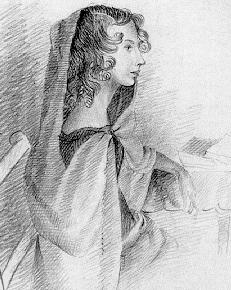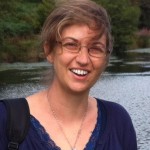
Anne Bronte
Born on January 17th, 1820, in Thornton, Yorkshire, Anne Brontë was one of five siblings and the sister of fellow poets and acclaimed novelists Emily and Charlotte.
The three sisters were raised in a strict Anglican home by their clergyman father Patrick Brontë and a religious aunt, following the deaths of their mother and two older sisters. Anne was largely educated at home, and later became a governess herself.
Anne worked for several years before she and her two other sisters compiled a collection of poetry. Anne wrote twenty one poems in the compilation. Knowing they were unlikely to be taken seriously if they published their work under their real names, the book, published in 1846, was known as Poems by Currer, Ellis and Acton Bell. Anne adopted Acton Bell as her pen name for some years.
Later inspired by her experiences as a governess, Anne published her first novel, Agnes Grey, in 1847. The Irish novelist George Moore was later to call Anne’s debut work “the most perfect prose narrative in English literature.” When he wrote Conversations in Ebury Street in 1924, Moore declared that “if Anne Brontë had lived 10 years longer, she would have taken a place beside Jane Austen, perhaps even a higher place.”
Anne’s second novel, The Tenant of Wildfell Hall, was published in 1848, and told the story of a woman leaving her abusive husband. It was published in three volumes in 1848, and despite the controversial nature of the topic at the time, it proved very popular.
Sadly, the Brontë family continued to be plagued by ill health for years after the death of Anne’s mother and brother and sister. At only 29 years old, Anne herself died of tuberculosis on May 28th, 1849, in Scarborough. Her death came not long after that of her brother Branwell and her third sister Emily, who both died of the disease in 1848. In 1854, Charlotte Brontë also died, this time during her pregnancy.
Despite dying so young, all three Brontë sisters left a legacy of literature behind them that is still enjoyed, studied, filmed and televised in Britain and the rest of the world.
